Over the years, I’ve noticed the letters “if” at the end of many Japanese game, manga, anime, and book titles. I never really paid it much attention – I just assumed it was an abbreviation for something or just for decorative purposes to sound cool.
A reader recently asked me about this “if” thing, so I finally looked into it. It’s actually really simple: the “if” isn’t an abbreviation or decoration at all, it’s the English word “if”.
Multiple Uses of “if”
From what I can tell, this “if” is used to indicate a few different things:
- Sometimes “if” is in the “what if?” sense – in other words, it’s an alternate look at a pre-established world, like an alternate universe or a parallel world. I feel like this is the most common meaning, whether it’s in a game title, manga title, fan fiction title, etc.
- Related to the above, it might indicate that the pre-established world is seen from an alternate perspective, like through the eyes of a different character.
- Sometimes “if” indicates that the game hinges on a major decision or multiple major decisions.
Examples of “if” in Games
More Examples
I’d like to add to the list of games above with more “if” examples, so if you know of any others not listed here, let me know. I’ll update this article from time to time as I come across any more!
If you liked this article, definitely check out my article about why the letter W appears in so many Japanese games and Japan's obsession with the word "Labo"!


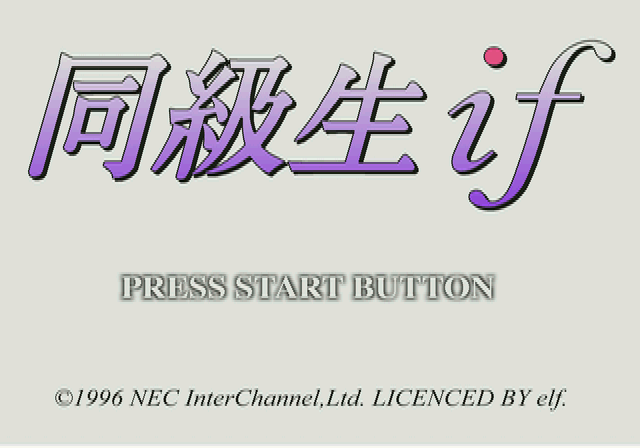

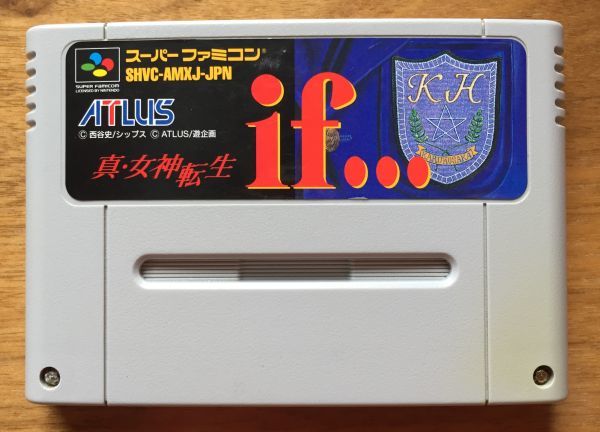

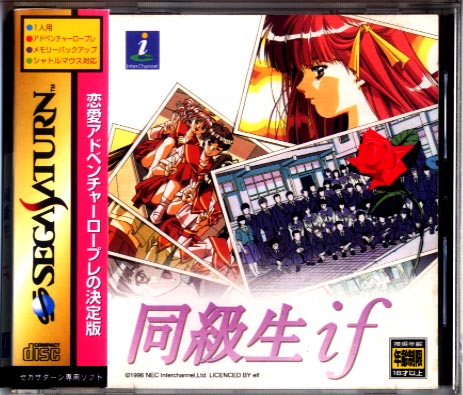


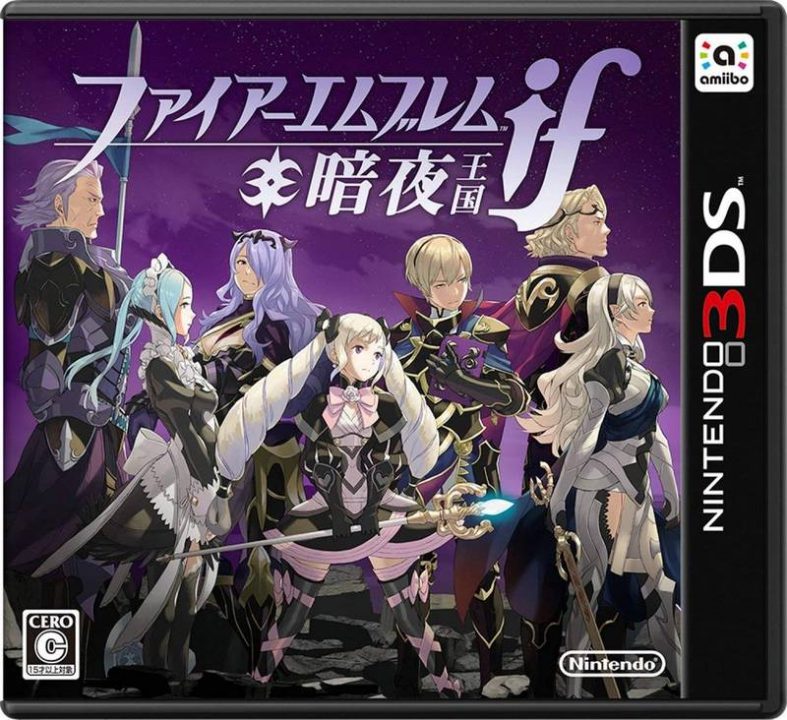
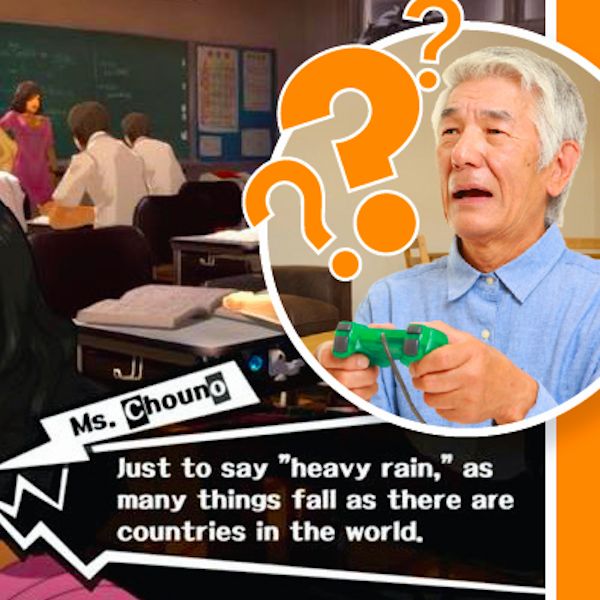
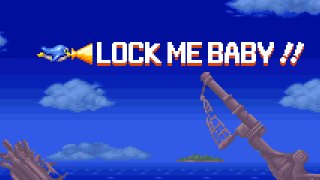
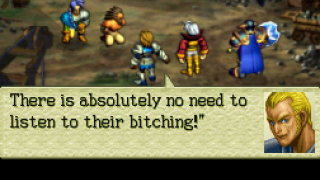
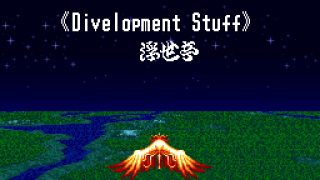
There’s a Danganronpa light novel spinoff called Danganronpa IF.
Thanks – I’ll add it to my to-add list!
Also, thanks to ReyVGM of The Video Game Museum for the question and examples. Such a cool site & resource!
Thumbs up!
Funny the sizeable overlap an “if” game could very well have with an IF (interactive fiction) game. If, you know, those were still in vogue.
That was kind of what I originally assumed it meant myself long ago. I was never much into IF which is probably why I never bothered to look into it here until now, haha.
I hadn’t heard of an Interactice Fiction in Japanese. For those of you who don’t know, Interactive Ficiton are text adventures that involve typing in commands; examples of such games include Colossal Cave Adventure and Zork.
These games rely solely on text. Even interacting with the game world involves typing in text, which then gets interpreted accordingly.
Aside from a purely Japanese language tame being perhaps a bit unweildy (but not impossible), many game engines common for Interactife Fiction do not even have the technical means to store Japanese text within scripts other than Latin.
There’s an old hentai game called Little Princess which is an interactive fiction game. It’s freeware now and even has an English translation if you really wanted to play it for some reason.
I think I’ve seen some others, but I can’t remember any.
Or, wait, now that I’m remembering that it still had graphics. So I guess it’s just a text parser adventure game. Although even then, Japanese adventures games were more likely to use buttons with set commands in the vein of Shadowgate, right?
Nah, there are plenty like that, you just don’t hear about them because they’re utterly inaccessible to non-Japanese speakers, so unless they’re connected to an existing franchise, you get a dead end.
HG101 notes the original MSX Princess Tomato in the Salad Kingdom, and also Dezeni Land and Dezeni World by the same publisher.
Not only were there Japanese text adventures, but some of the Infocom IF games were localized:
https://www.filfre.net/2012/07/japanese-adventuring/
The earliest games were in English, and most commercial Japanese text adventures also had illustrations. They used simple two-word commands (in the style of many early English-language 8 bit computer adventure games) which eventually transitioned smoothly into menus in games like The Portopia Serial Murder Case:
https://images.gamewatcherstatic.com/image/file/9/2b/70739/murder.png
And this style of adventure game was the ancestor of the modern visual novel, which is certainly “interactive fiction” by another name.
IF is still alive and kicking! 🙂 The games are mostly written by IF enthusiasts now. It’s been made much easier thanks to a programming language called Inform 7. Here’s a big ol’ archive if anyone is interested in checking some out: https://www.ifarchive.org/
It’s worth noting that fans have two theories to the “If…” in Shin Megami Tensei: If… It’s definitely a reference to the game being an alternate universe scenario (it takes place “instead” of SMT1), but it may also be a reference to the horror/school-themed British indie film, “If…”.
I can’t confirm or deny, at least not until SMT: If… finally gets a fan-translation.
Yeah, someone mentioned it on Twitter too – I’m not familiar with the movie, but it’s entirely possible that it or something like it led to the whole “if” trend in Japan in general too.
If you haven’t seen it, even the style of the logo is the same. https://i.imgur.com/yw05DWg.jpg
It may not be relevant to the article, but I should probably point out the Fire Emblem if games fall under the first and third categories: each game has the same first four levels, and then you make a choice as to which story path you want to follow, each giving a different look at the world and causing events to unfold differently. This was localized in English as “Fire Emblem Fates”, as a way to get across the intent of “choosing your own fate”.
Man though, I was incredibly disappointed when they announced the English title was gonna be “Fates”, like “if…” sounds like a cool way to describe the two (kinda 3?) branching paths the story takes. “Fates” sounds so blah, like it’s the least exciting way to describe what happens with the story. Really though, I’m mostly disappointed because I feel Fire Emblem is one of the few franchises that could get away with a name like that in English, but they went with a safer option instead.
There’s a new Kill la Kill video game called Kill la Kill the Game: IF. You should add that to the list.
The “IF” in this case is “異布” in Japanese. The word “異布” does not exist in Japanese lexicon, but the first character means “different/another” and the latter is “cloth/fabric.” So, if you are familiar with these Kanjis, you would be able to understand the word. Also, if you are familiar with the Anime, it would easily make sense why they made up the word using these characters.
Fun fact:
Most Japanese should misread the word “異布” for “畏怖” at the first glance, since “畏怖” is a commonly used term in Japanese entertainment. And the chances are especially high when you are familiar with the Anime; the word “畏怖” fit well with the narrative of Kill la Kill.
Similar to “Gaiden” games, offshoot from the main storyline. I feel that “if” is just the “cooler” alternative name that fits better with Western-sounding game titles.
If I’m not wrong, “gaiden” and “if” are different things. “Gaiden” refers to a side-story, but it might be something that happens in-universe that isn’t the main plot or isn’t covered by the main games. “If” is a full-blown “what if” scenario that might happen in a parallel universe or an alternate timeline. I might be wrong, though.
The programmer in me wants to give these “if” games an “else” counterpart.
Pokemon If and Pokemon Else? =P
More like Pokémon while{1};
if (game=good) {
PlayGame(game);
} else {
UninstallGame(game);
}
Do you think this relates to the common grammatical ‘tara’ form which roughly means ‘if’? If ‘doukyuusei if’ was in japanese it would be ‘doukyuusei dattara / 同級生だったら’
The only issue with that is that the dependent clause related to ‘if’ comes after ‘if,’ whereas with ‘tara’ it comes before. This is part of why titles ending in ‘if’ might sound strange to native English speakers. A title beginning with ‘if,’ like ‘If I Were a Rich Man’ make perfect sense, but titles ending with ‘if’ are like??? ‘if’ what?? But if you consider that it’s a kind of hypothetical or alternate take on the source material it makes sense, and can implicitly be read as something like ‘if things were different.’
With ‘tara,’ on the other hand, the hypothetical comes beforehand, so ‘doukyuusei dattara’ would be ‘if we were classmates,’ (which works as a title, but doesn’t carry the same meaning) rather than ‘classmates, if [things were different].’ It makes more sense to me given the context of ‘if’s’ usage that the hypothetical clause is unstated, rather than the series title itself. But, not knowing for certain the thought process behind these names, I could be wrong!
To see all the games with “if” on the titles, you can do a simple GameFAQs search and it will give you all the titles:
https://gamefaqs.gamespot.com/search?game=if
There are only a few games apparently.
Without SMT IF, we wouldn’t have the popular Persona games. This means SMT IF happens to be more important than you thought and in fact you could say it’s ‘Persona Zero’ in the overall series. Sure, Velvet Room and other Persona staples weren’t introduced at that stage but there supposedly are similarities regardless., the High School setting being the most obvious one of the bunch.
Persona 2 Eternal Punishment doesn’t take place in a high school setting and it’s the only one not to.
I came here to say this, Shin Megami Tensei IF is probably “one of the most important ‘IF’ games of all time” because the alternate continuity became more popular than the main continuity for a number of reasons.
Related, the Super Robot Wars series (a long-running mecha anime megacrossover strategy game series) has recently taken to having lategame path branches based on two different versions of the same source series’ storylines, and various guides (at least online, I’m not sure about official ones) refer to the version that diverges from the original canon as the “If route” using the first and third definitions. The initial example in these games was SRW Z, where the If split relates to whether the endgame of Gundam Seed Destiny happens as in the TV series or the protagonists decide to stay with the player’s group.
Shin Megami Tensei If… was inspired by the film If… was it not?
I’m curious; not directly related, but a lot of Youtube comments in Japanese, when translated to English (using Google’s Translate Page option), become ” in case”. What is going on with the “in case” at the end?
I’m not really sure, I’d need to see some examples to say for sure. My guess is that it’s Google Translate trying to translate Japanese Internet slang, possibly the “blah blah blah blah件” thing.